“The world is different when people are asleep—better. I wish they would sleep forever, but they always wake up and ruin everything.” ~ John Dodd
Fighting your inner demons has never been more intense than it is in Familiar—the new short horror film written and directed by Richard Powell. “After 45 years of existence, my life is about to begin,” is the quote that best sums up the plot, without giving away a story as unique as any I’ve seen in a long time. Yes, after a lifetime of complacency, John Dodd has had enough. You could even say that, for him, and to use the title, life has become a little too “Familiar.”
What’s John had enough of exactly? Marriage, family, and children! They can be the most wonderful things in the world. They can be the sources of the greatest happiness, the greatest dreams, and ultimate fulfillment. From the time we meet a prospective mate, we are, it seems, driven to do all that usually follows, for better or worse. Society and instinct prods us to the end it expects, whether we want to go there or not, tempting us with all the best. And, in the end, it’s where most of us go; in the end, all the best is what many of us get.
However, “many” does not include all. Marriage, family, and children, can also be the most horrifying things in the world. With these things a person can become a prisoner in a lifeless existence, as a shell of someone he or she once was, only pretending that things are wonderful. Pretending is, after all, better than facing an ironic reality of true horror, and God forbid, letting others know the misery. Caught within us, such misery can fester and grow, creating a monster, ready to explode and show its ugly self in a moment.
How can marriage, family, and children be such an ultimate horror? If you still need to ask that question, John Dodd’s life is a perfect (albeit extreme) example of “how”. John is an ordinary, unimportant man who has spent the bulk of his married life as the money man, the provider, the otherwise in-the-way oaf, and yes even the host to his (what he considers) parasitic family. John’s inner demon voice even describes his own daughter as such: “A plant or animal that lives in or on an organism from which it derives sustenance….without benefiting the host, and usually doing harm.” If that doesn’t sum up John’s detachment from all, nothing else will. In his mind, being a good spouse and parent over the years has stripped him of all he’s worth, all his potential, and everything he could have ever been without the burden. John’s life is but a banal, repetitive routine, stagnant, and stinking with despair. As a prison warden by trade, he himself is jailed by his family. John hates his daughter as much as he hates being a father; Being a father is yet another event that has trapped him in his misery.
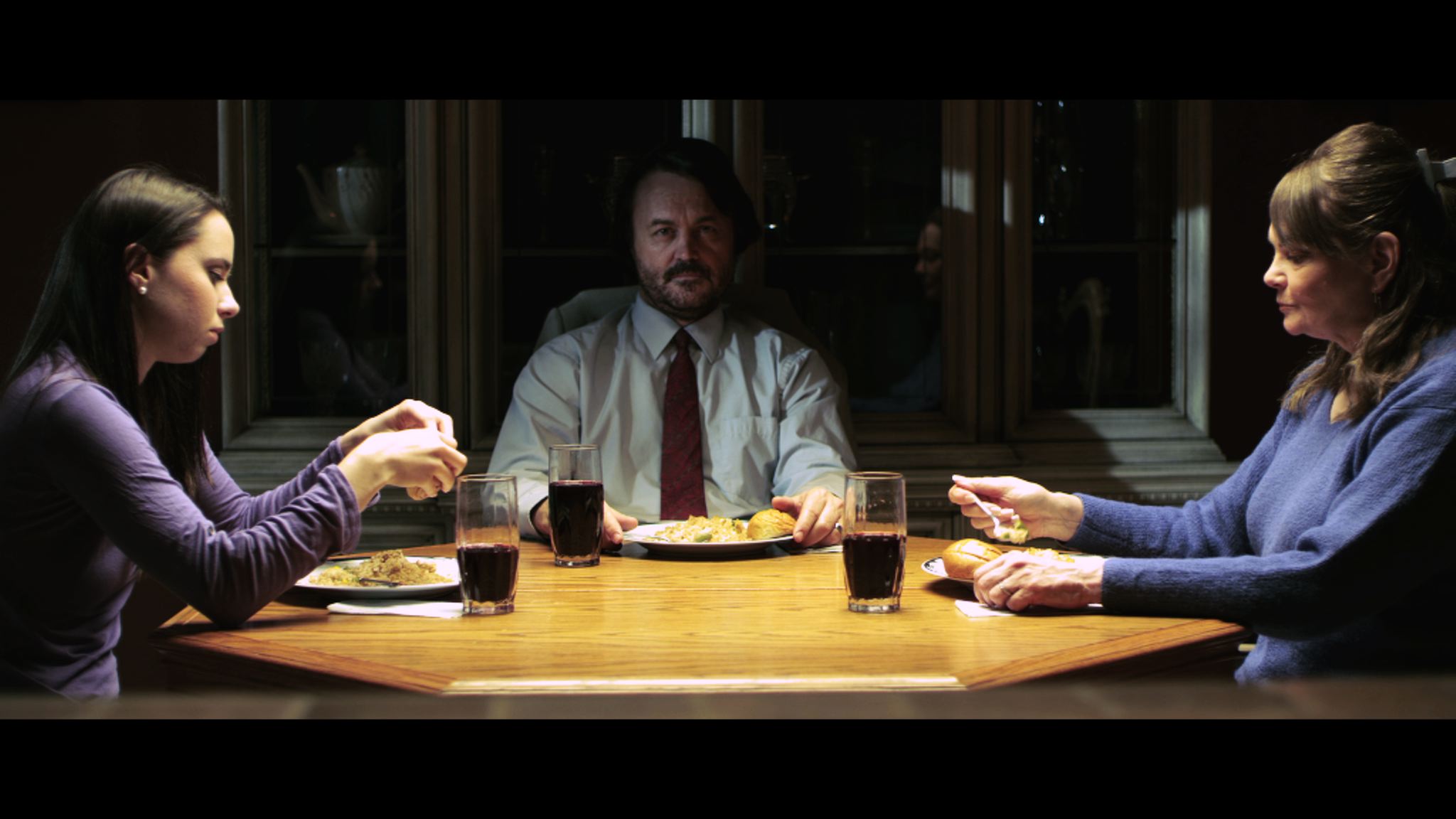
Cathryn Hostick, Robert Nolan, and Astrida Auza in FAMILIAR (This screenshot illustrates John’s circumstances better than anything I could ever say.)
Is John’s hatred of his daughter where it ends? No. That’s only where is begins. It ends with his very own wife, of all people, undeserving, as he thinks, of even the most common and menial of jobs she has. As she complains about being unappreciated at work, John agrees and sympathizes half-heartedly, only to hear his inner demons agreeing with her, that she’s totally worthless—even more so than she thinks herself.
“In time, these jailers will take everything—rob you of every wish, hope, and desire.” ~ John Dodd’s Inner Voice
Yes, John isn’t even a very good actor. His hatred for all who imprison him in life is so strong that he can’t even disguise it. His responses to even the needy complaints are so flat that only the most truly needy of people would halfway believe him. Being such a person, his wife indeed falls for even his most insincere support.
Therein, and because of this, we have what is arguably the second main character—John’s ever-loudly protesting conscience, or inner demon, knowing his mistakes and the way to correct them all. The bulk of voice we hear in the movie is, in fact, this demon, narrating the story, becoming ever more disturbed and determined to solve their problem—at any expense. Yes, I say “their” problem, as that’s exactly what forms the need for alliance. The inner voice’s sarcasm, disgust, and eventual anger contrasted with John’s outward appearance of harmlessness and peace is captivating, and almost hypnotic, throughout the movie. Despite all we see, a great danger is boiling beneath his utterly innocuous appearance. Instead, all we hear is all that’s important. What we see is only a façade. Such disguised danger is the stuff of the best horror films I’ve seen.
“It’s up to you to make a plan to break free, to escape.” ~ John Dodd’s Inner Vocie, again! (Yes, it’s relentless!)
Without revealing too much again, I’ll say that fighting with one’s inner demon has also never been quite as literal as it is in Familiar—at least not in any movie I’ve seen. What exactly does this mean? I’m not about to tell you, as this would spoil too much of the movie’s unique payoff—or rather, its bonus. Payoff would imply that there’s not much more in it, and that’s far from the case here. Watching Familiar from beginning to end is what I would call a payoff in itself. Yes, it’s that kind of movie!
Taken out of context, it’s easy for such content to offend those who hold marriage, family, and children so sacred and above even thinking about in such ways—as being parasitic, destructive to one’s true self, or harmful to one’s character in any serious way. Some might be secretly disturbed seeing it in a horror film, finding its horror too realistic and personal. It can be one of those real-world horror films that hits too close to home, so to speak, unearthing some of our own well-hidden and very uncomfortable thoughts—thoughts that assault us, spontaneously, coming from, as we like to think, nowhere we know in ourselves. However, Familiar, along with a good bit of honesty and hard introspection could humble and speak volumes for even the most ardent protestors. I dare anyone to be so honest.
What about the acting? Well, it’s exactly what it needs to be to tell the story, just as it is best told. And that may very well be the compliment that can always best compliment acting. Robert Nolan is the perfect “everyman” or any man, as he portrays the nondescript ordinary type who doesn’t “matter”. Just as he should be for the part, he stands out in no particular way—with his behavior or appearance—and therefore easily becomes the no-one-we-remember type we see every day. In the end, John is memorable only for the extreme things he thinks and ultimately does. Does this mean that Robert Nolan’s performance is not so special or talented? No, not at all. To the contrary, Nolan does something not so easy at all—being so disaffected, and conveying this so well in his expressions (or lack thereof) is indeed, and ironically, outstanding…and very talented!
Likewise, Astrida Auza (as Charlotte Dodd) does exactly what’s necessary to give us, as an actress, the well-meaning, faithful, albeit boring woman, no longer able to attract her husband in any way. I must stress that this is all done skillfully enough by Auza “AS AN ACTRESS”, as I am making no judgments about her as a person otherwise. I am sure Auza herself is nothing like Astrida; she is simply an actress skillful enough to play the part, just as it needs to be played, as John’s all too familiar wife.
Likewise again, Cathryn Hostick (as Jordan Dodd) is much the same as her fictional mother. Hostick is just like many (but not all) teenagers, barely aware of her parents’ existence, except during times that she needs them and becomes the “parasite” John labels her to be. Jordan, portrayed by Hostick, is just as John sees her—someone who is but a meaningless burden in his life, unappreciative of the “sustenance” and “protection” she derives from him as the “host”. Hostick makes Cathryn stand out in that way, as someone whose insignificance is, ironically, very significant; she plays a small but significant part perfectly.
What about the special effects and gore? While I won’t tell you what they are, I will say that they are there, and they are very well done—more than well enough to achieve the needed effect. Above all, realistism is the achievement here, in a movie that would fall flat with anything less. At times when we need to be focused on what we see, we are not distracted by thoughts of how fake it looks. Instead, our mind is exactly and uncomfortably where it should be in any good horror film—squarely on the physical and psychological elements of the moment–with every cut of the knife and every drop of blood. When certain flesh-fileting things were happening, I was cringing just a bit, or…I admit…quite a lot! Coming from a veteran of blood-gushing visuals and gratuitous gore, that’s a pretty good compliment!
What else happens in Familiar? A lot more! Yes, all in less than 24 minutes, there’s much more. Does John kill anyone? Does he win the battle with his inner demon, only to save the day, reviving love in his long-dead marriage? What plans does he (and his inner voice) hatch to solve “their” problems? Is everything that haunts John only in his mind—as a perceived horror, rather than a reality? Or, is his horror much more than what his family inflicts upon him—perhaps something far more grotesque and very real, indeed? Those are just a few of the many questions you’ll likely have before Familiar is over. So, I wouldn’t want to spoil the fun (or fears) in finding out. I’ll leave those answers for you to discover yourself.
The saying “Familiarity breeds contempt,” is never truer than it is in Familiar. The only difference is that Familiar also breeds something much worse than contempt. If contempt isn’t enough, what we have here certainly is—a powerhouse of a terror tale that will bring you to your knees–literally! A tangible manifestation of intangible evil makes for one of the most chilling movie experiences you’ll have—yes, and all in just over 23 minutes! As for effect with efficiency, you surely couldn’t do better. As for horror that hits home for those honest enough to admit it—at least to themselves—you also couldn’t do better. Yes, real-world horror—the most intense in the genre—is here at its best, with all its “It could be you” impact! So, by all means, watch the movie, but, whatever you do, don’t get too “Familiar” with it. Within, you might not like the evil you’ll find!
FAMILIAR was the winner of Best Short Film at Chicago Fear Fest (2012) and winner of Best Short at A Nightmare to Remember International Horror Short Film Festival (2012)
For a couple of screenshots to really get your inner demons talking, check these out! Oh, and I’m not even leaving commentary here. You’ll have to watch the movie! 😀
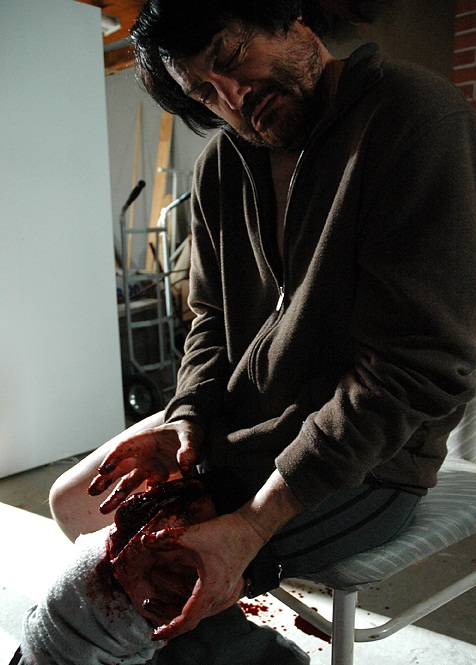
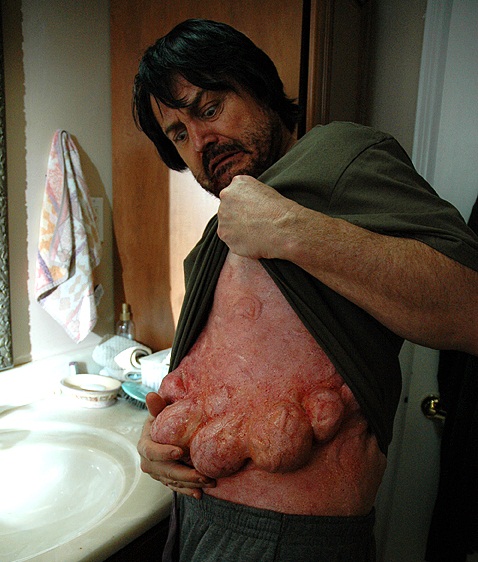 Check out Familiar on IMDb by clicking here!
Check out Familiar on IMDb by clicking here!
Vist the official Fatal Pictures Inc. website by clicking here!
See Robert Nolan’s official website at http://robertnolan.info
Fatal Pictures Inc. Presents Familiar, Written and Directed by Richard Powell, Starring Robert Nolan, Astrida Auza, and Cathryn Hostick, Edited by Navin Ramaswaran and Tom Mountain, Produced by Zach Green, Co-Produced by Michael Jari Davidson, Associate Producer Ryan Louagie, Executive Producers Zach Green and Richard Powell, Director of Photography Michael Jari Davidson, Assistant Director Mike Klassen, Production Designer Serge Tsukanov, Art Director Elena Chabounina, Music and Sound Design by Bernie Greenspoon, Makeup by Amanda Burritt, with Special Effects by Ryan Louagie, Carlos Henriques, Steven Dawley, and Indiana Allemang
…and now for a clip from Familiar! Enjoy…and then see the whole movie!
For a description of Rocket Rating 9, click on the Rocket Meter above!
You may also like these!
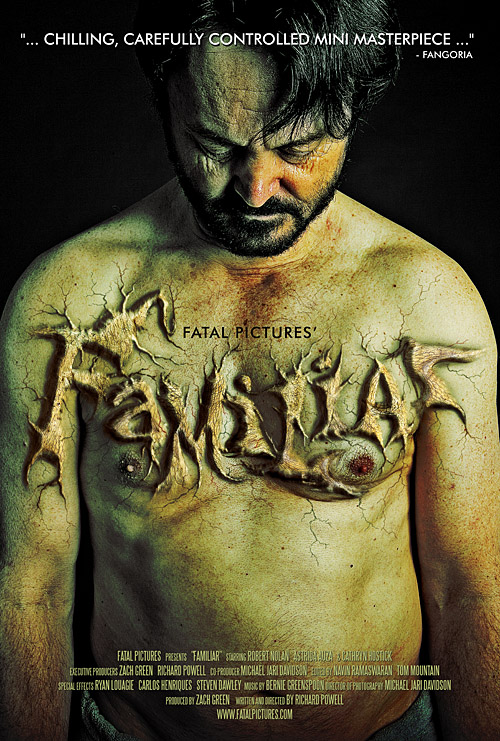
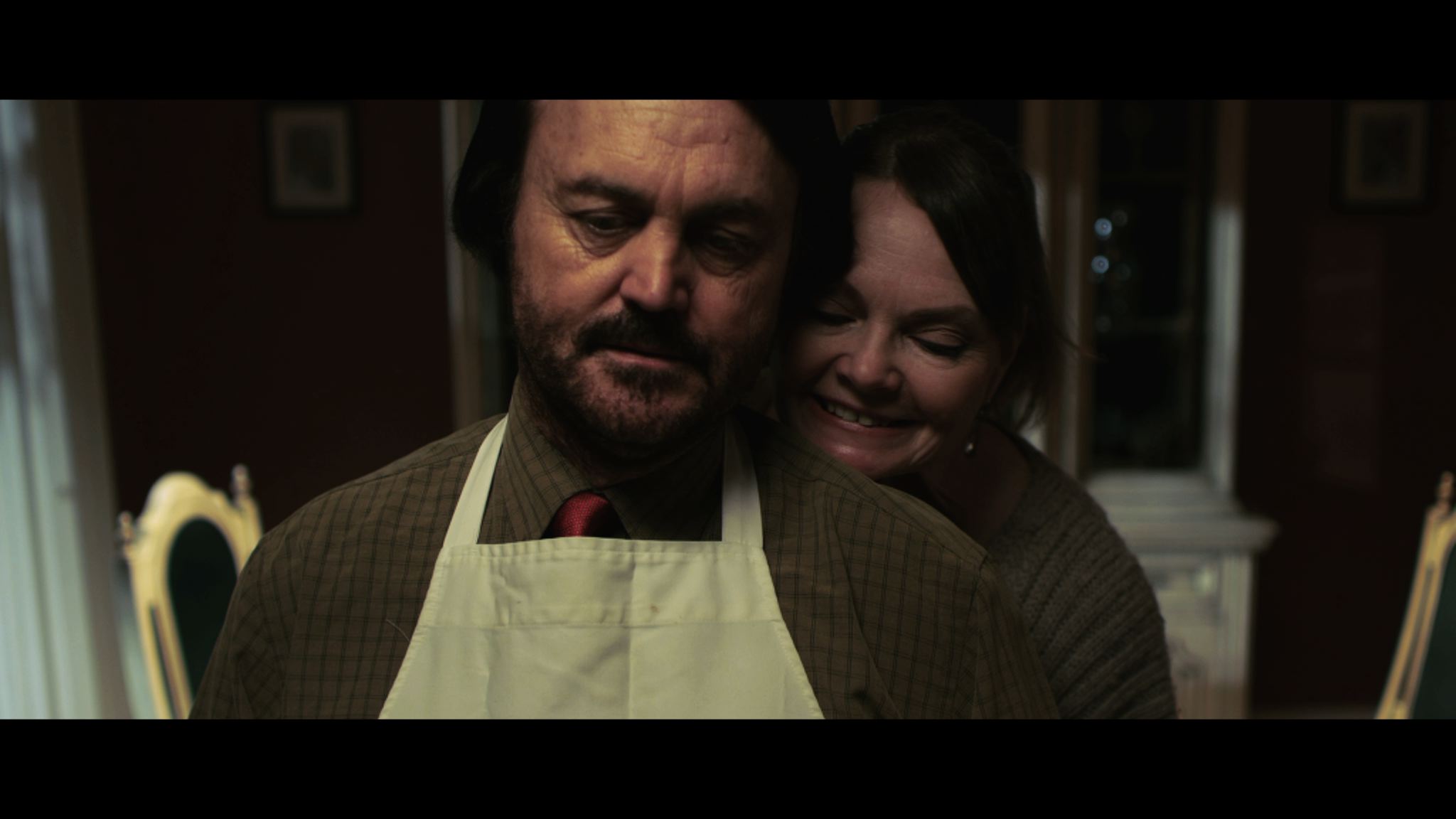
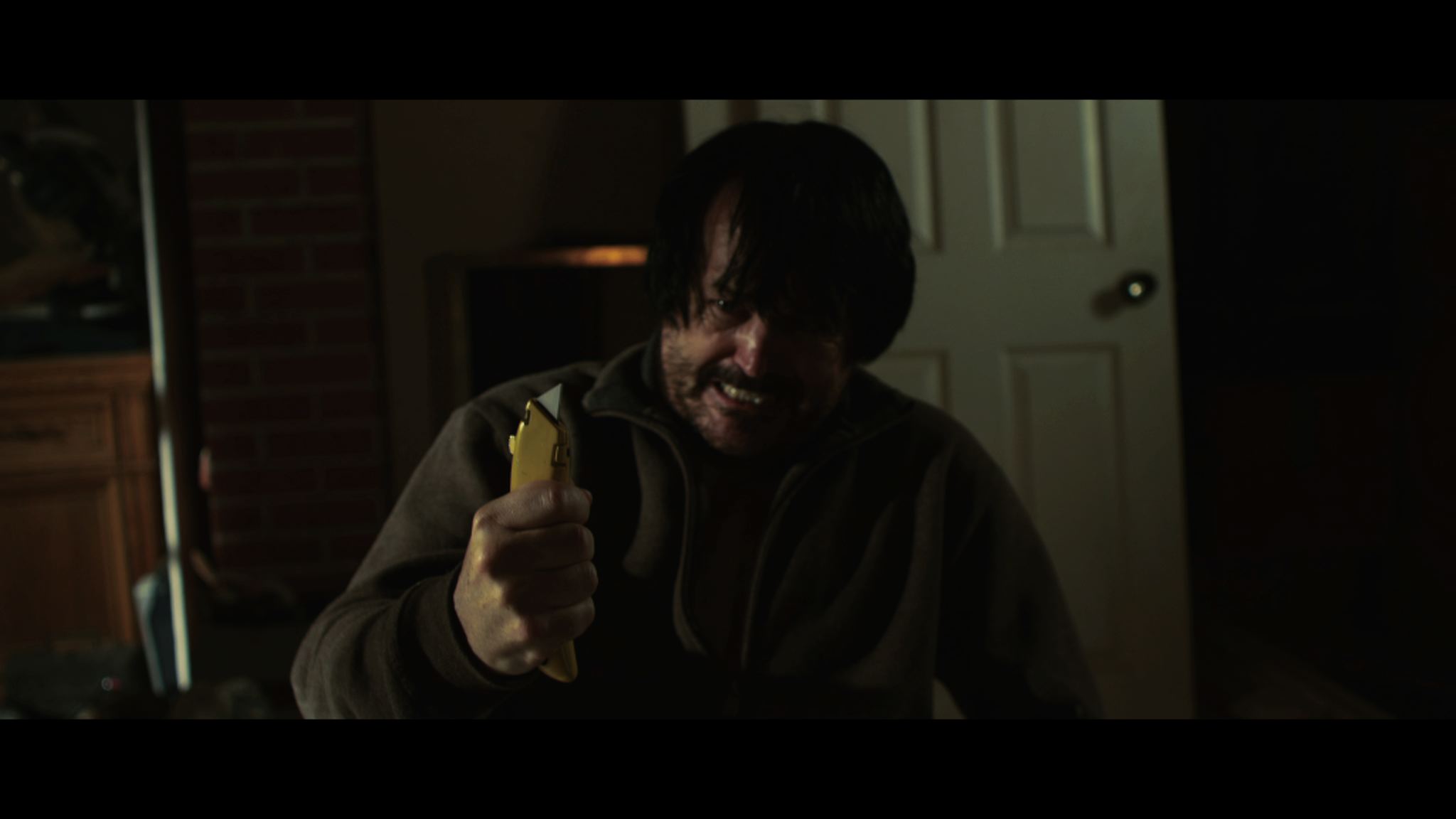
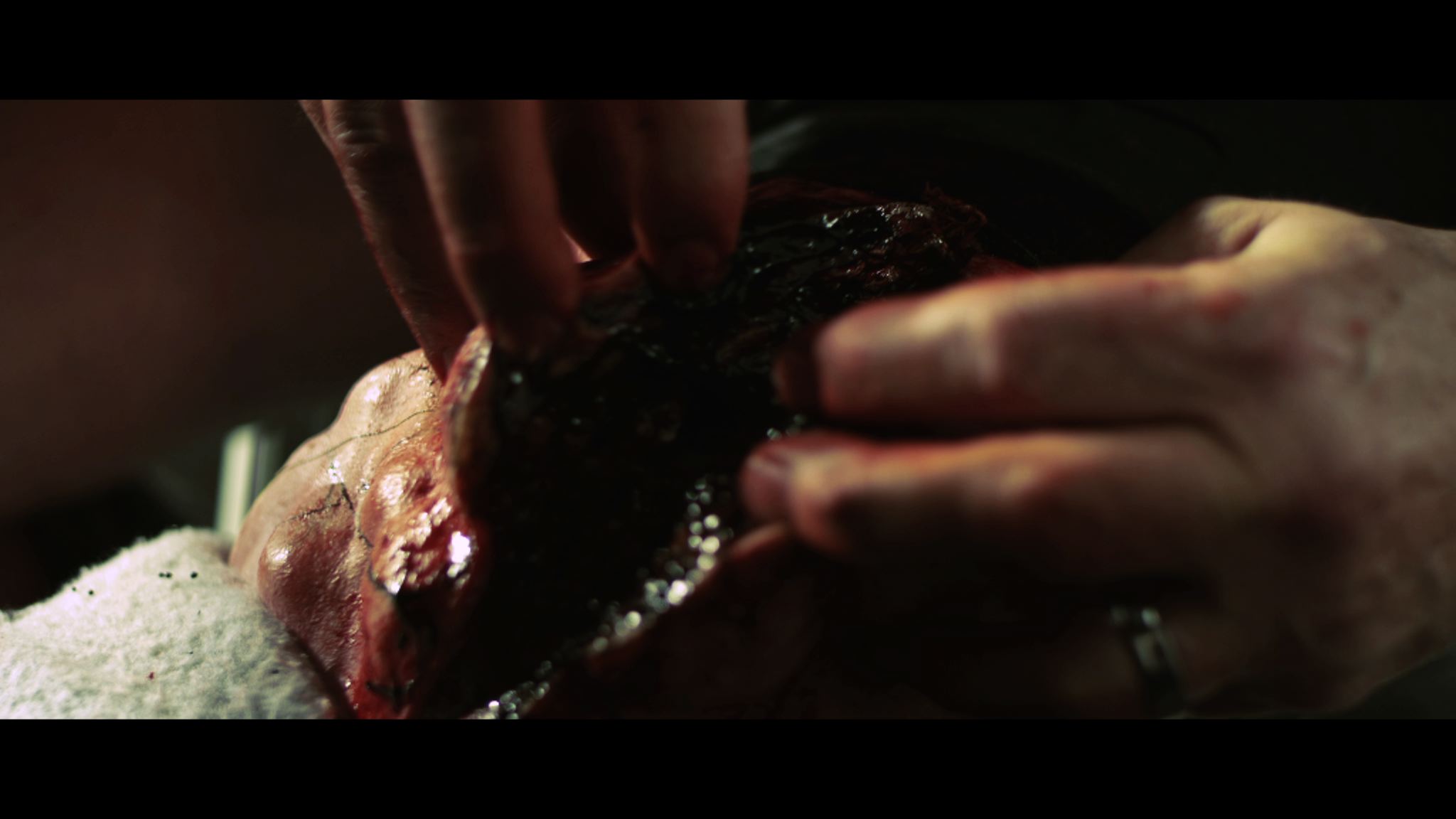

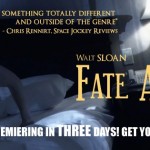


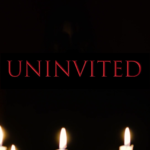


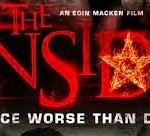



Most impressive short film I’ve seen this year. Totally blew me away.
I also got to see Powell’s “Worm” which is equally fantastic.
I totally agree, Maynard! FAMILIAR is a fantastic film, for sure. It totally captivated me, from beginning to end.
I will also look for “Worm” now that you mention it – especially since you say it’s “equally fantastic.”
Pingback: SJR Throughout the Universe! | SPACE JOCKEY REVIEWS